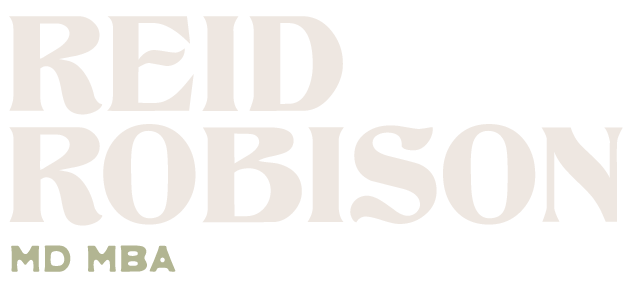Single-dose psilocybin treatment for MDD: A randomized clinical trial
JAMA Psychiatry | Published 5 September 2023
It was an honor to be one of the Investigators on this multi-site study sponsored by Usona, and it’s so exciting to see the results published this week in JAMA.
Design: In this phase 2 trial conducted between December 2019 and June 2022 at 11 research sites in the US, participants were randomized in a 1:1 ratio to receive a single dose of psilocybin vs niacin placebo administered with psychological support. Participants were adults age 21-65 with a DMS-5 diagnosis of MDD of at least 60 days' duration and moderate or greater symptom severity. Exclusion criteria included history of psychosis or mania, active substance use disorder, and active suicidal ideation with intent. Participants taking psychotropic agents who otherwise met inclusion/exclusion criteria were eligible following medication taper. Primary and secondary outcomes and adverse events (AEs) were assessed at baseline (conducted within 7 days before dosing) and at 2, 8, 15, 29, and 43 days after dosing.
Interventions: Interventions were a 25-mg dose of synthetic psilocybin or a 100-mg dose of niacin in identical-appearing capsules, each administered with psychological support.
Main outcomes and measures: The primary outcome was change in central rater-assessed Montgomery-Asberg Depression Rating Scale (MADRS) score (range, 0-60; higher scores indicate more severe depression) from baseline to day 43. The key secondary outcome measure was change in MADRS score from baseline to day 8. Other secondary outcomes were change in Sheehan Disability Scale score from baseline to day 43 and MADRS-defined sustained response and remission. Participants, study site personnel, study sponsor, outcome assessors (raters), and statisticians were blinded to treatment assignment.
Results: A total of 104 participants (mean [SD] age, 41.1 [11.3] years; 52 [50%] women) were randomized (51 to the psilocybin group and 53 to the niacin group). Psilocybin treatment was associated with significantly reduced MADRS scores compared with niacin from baseline to day 43 (mean difference,-12.3 [95% CI, -17.5 to -7.2]; P <.001) and from baseline to day 8 (mean difference, -12.0 [95% CI, -16.6 to -7.4]; P < .001). Psilocybin treatment was also associated with significantly reduced Sheehan Disability Scale scores compared with niacin (mean difference, -2.31 [95% CI, 3.50-1.11]; P < .001) from baseline to day 43. More participants receiving psilocybin had sustained response (but not remission) than those receiving niacin. There were no serious treatment-emergent AEs; however, psilocybin treatment was associated with a higher rate of overall AEs and a higher rate of severe AEs.
Conclusions and relevance: Psilocybin treatment was associated with a clinically significant sustained reduction in depressive symptoms and functional disability, without serious adverse events. These findings add to increasing evidence that psilocybin-when administered with psychological support-may hold promise as a novel intervention for MDD.
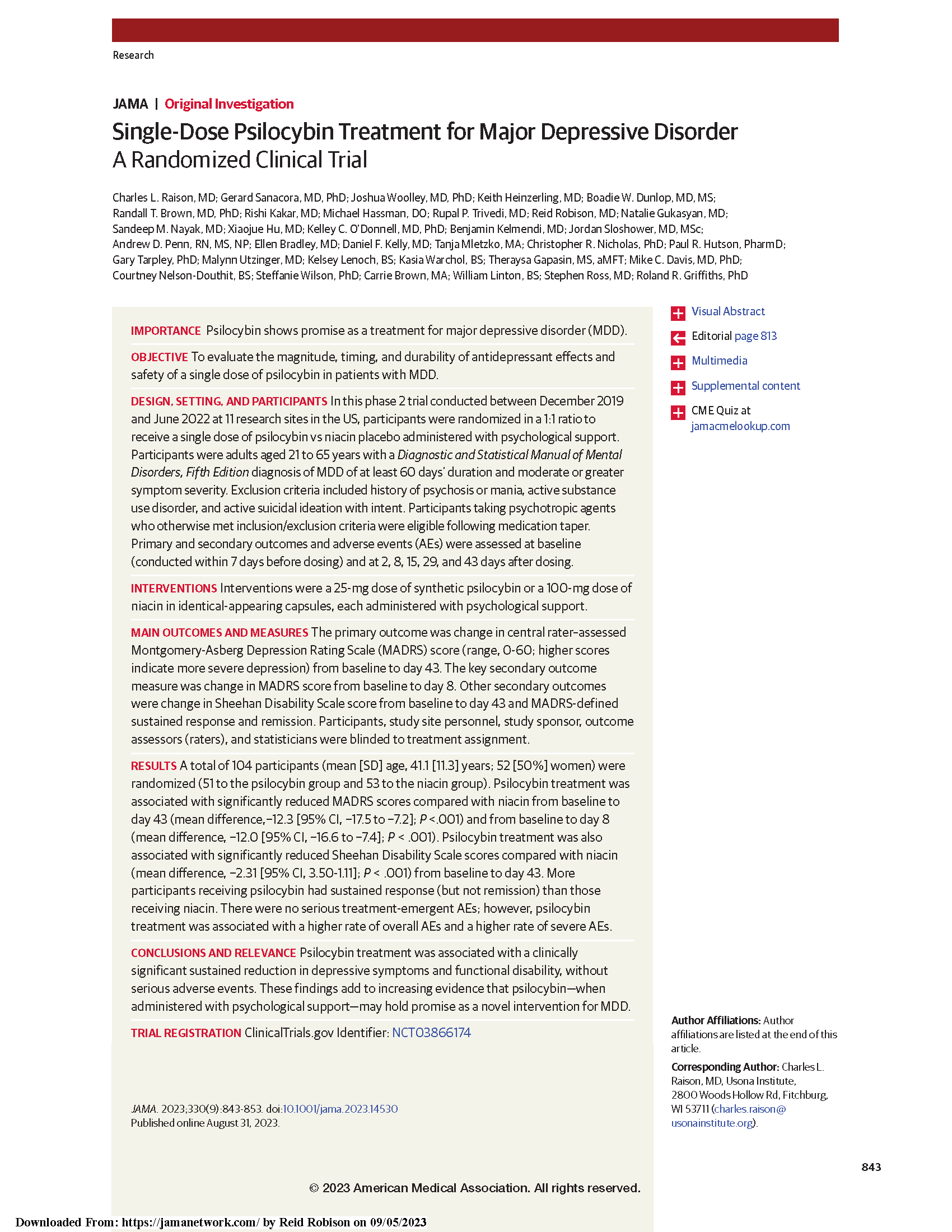
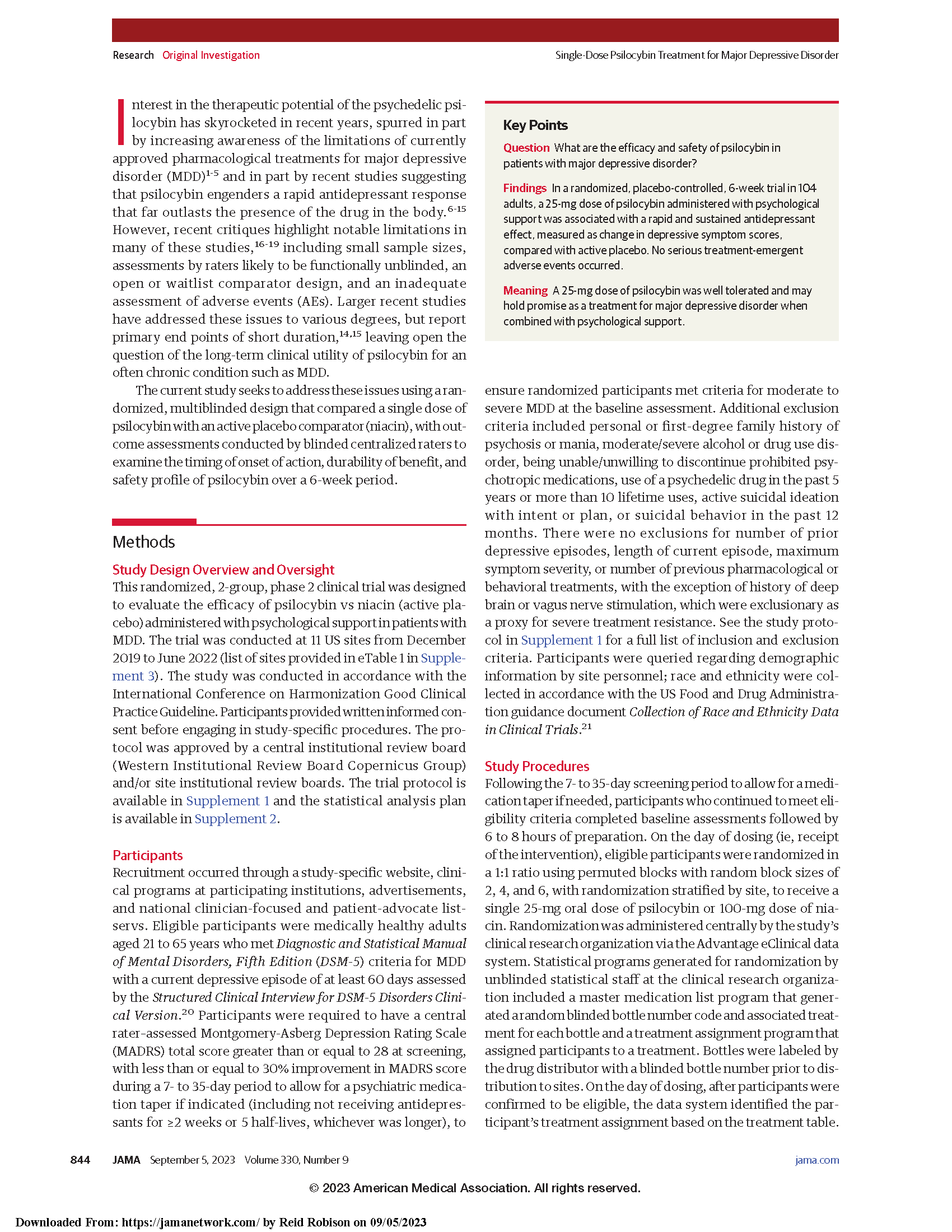
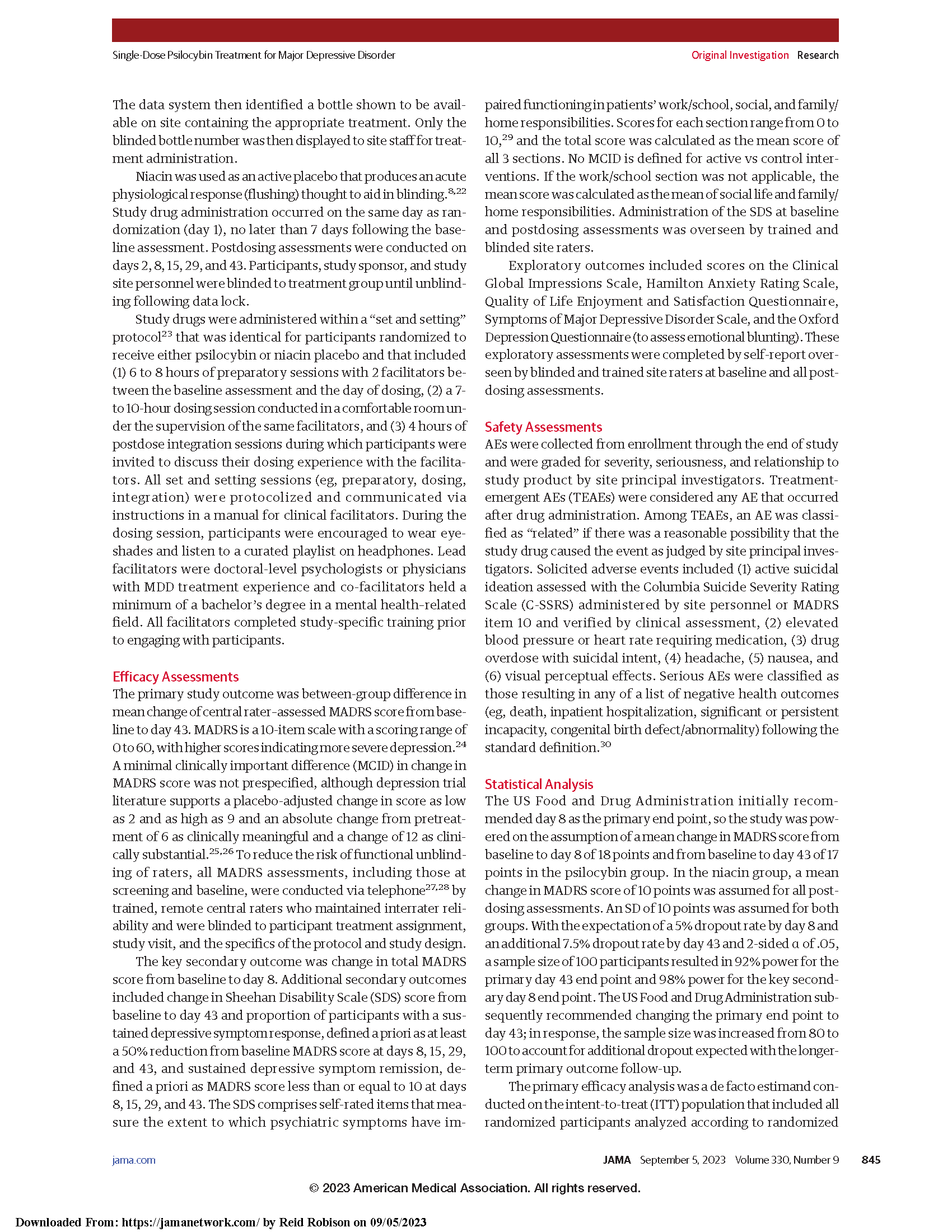
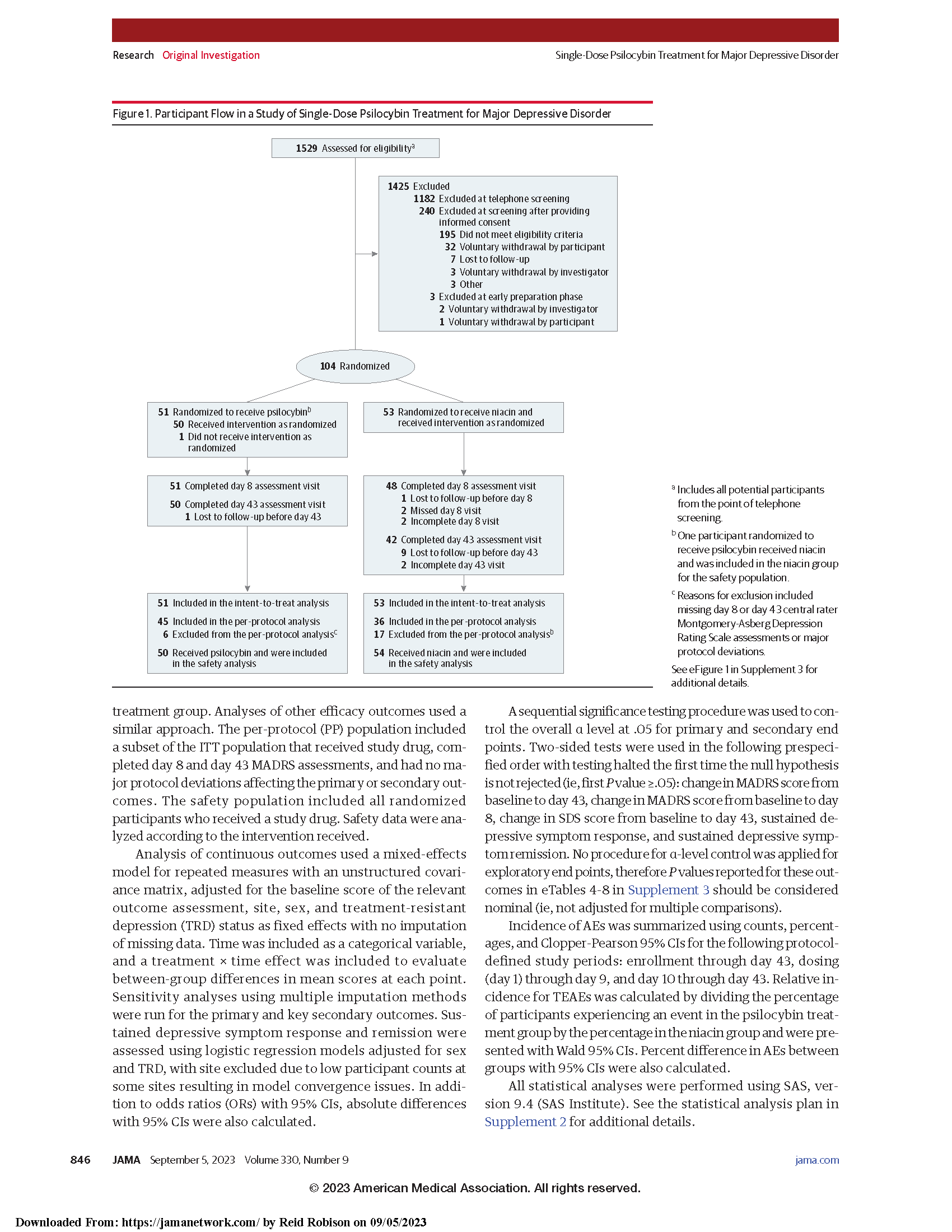
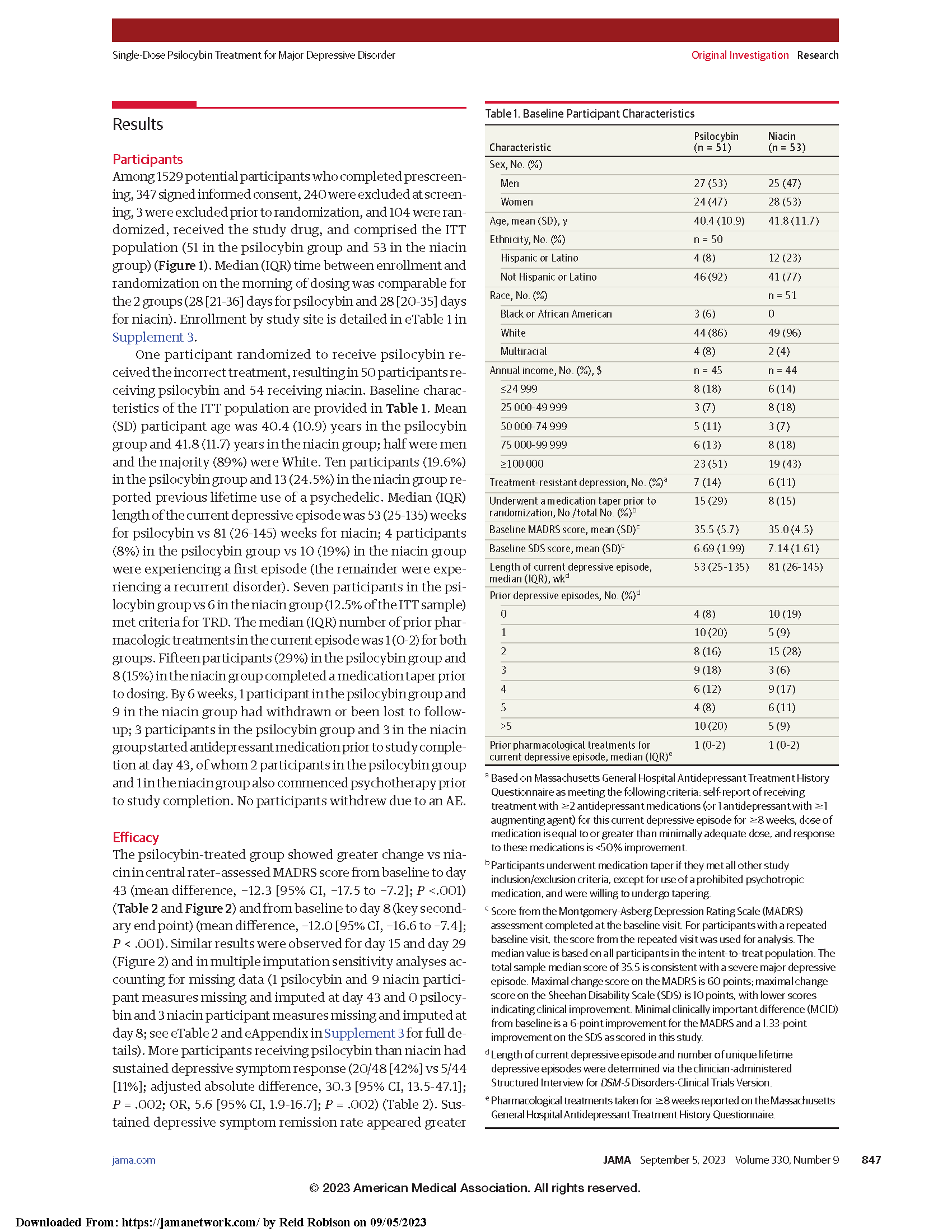
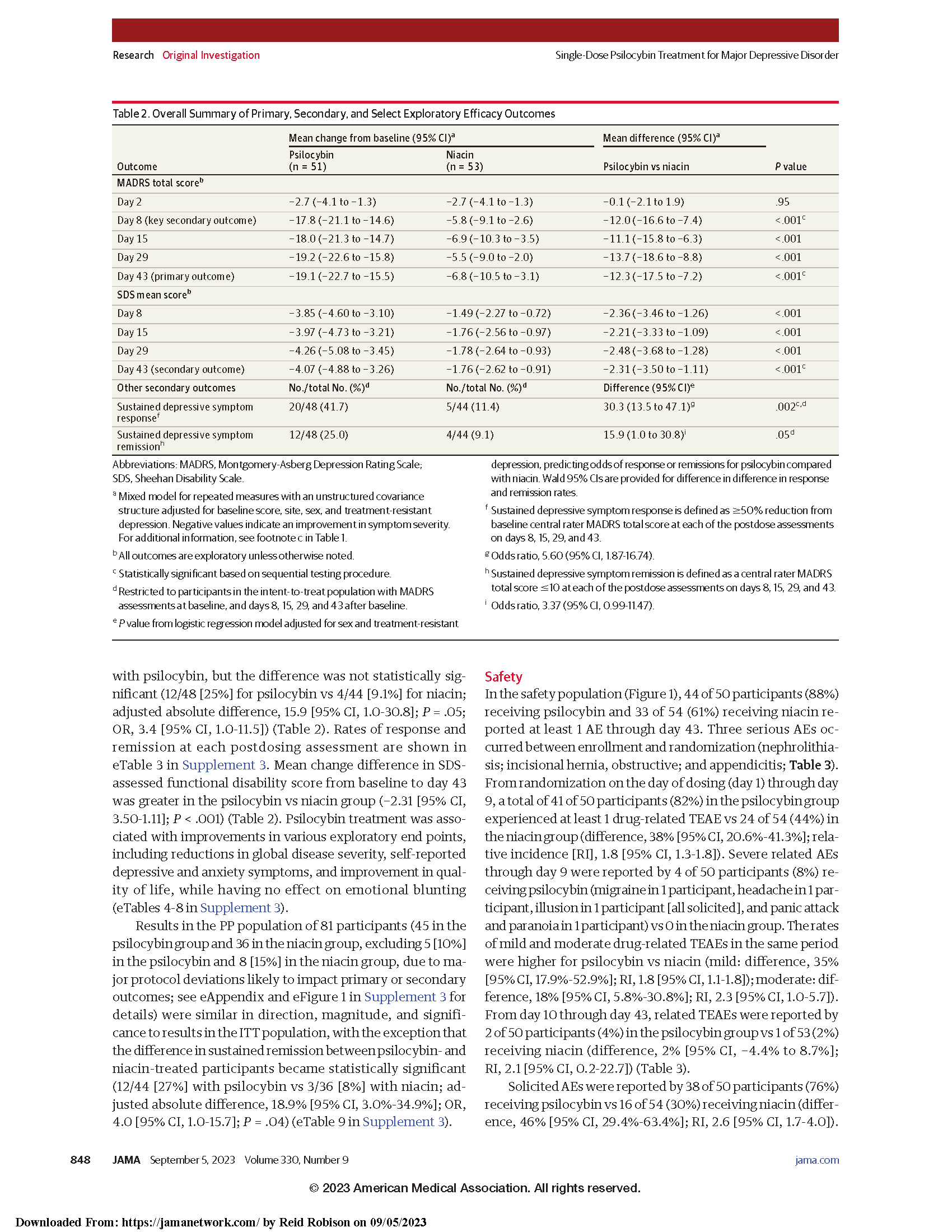
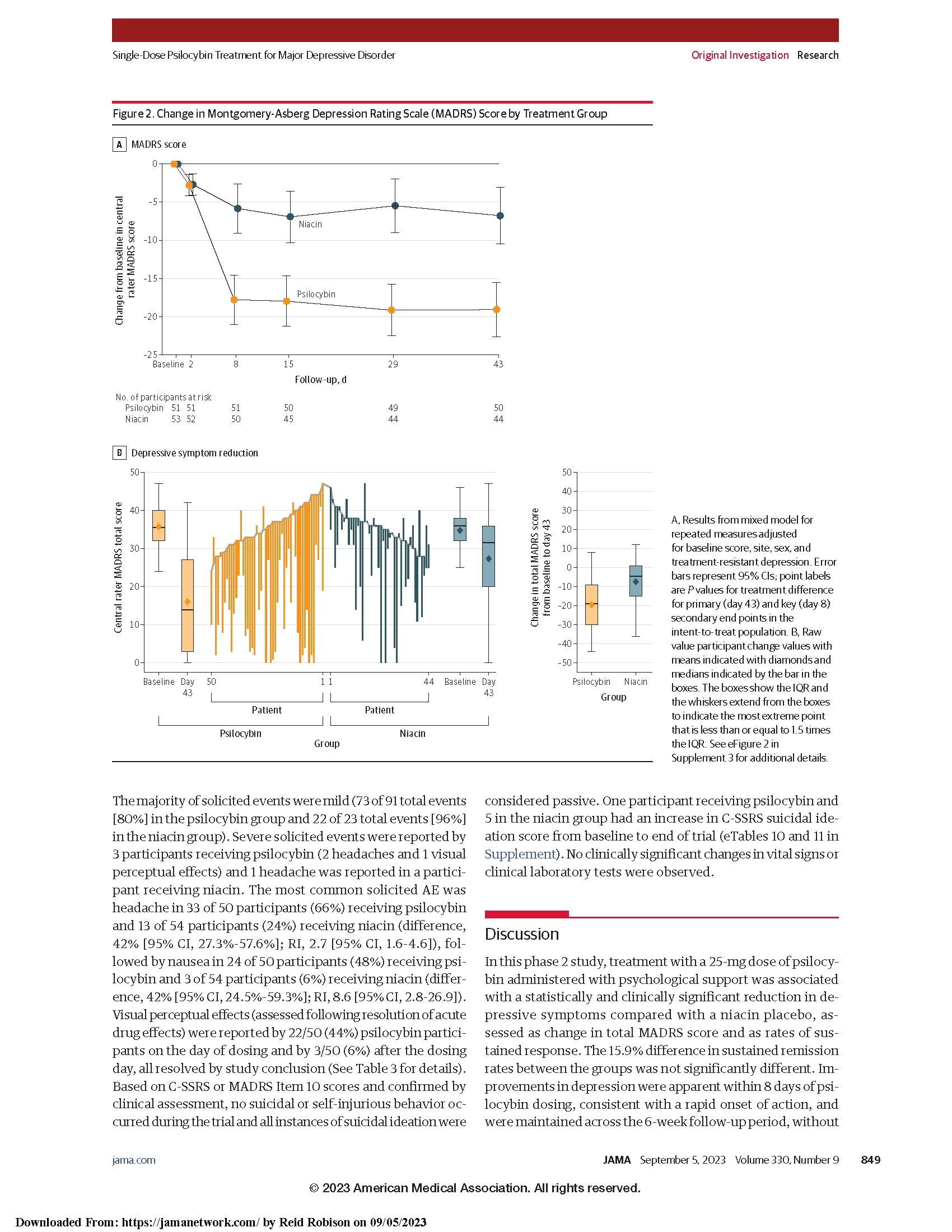
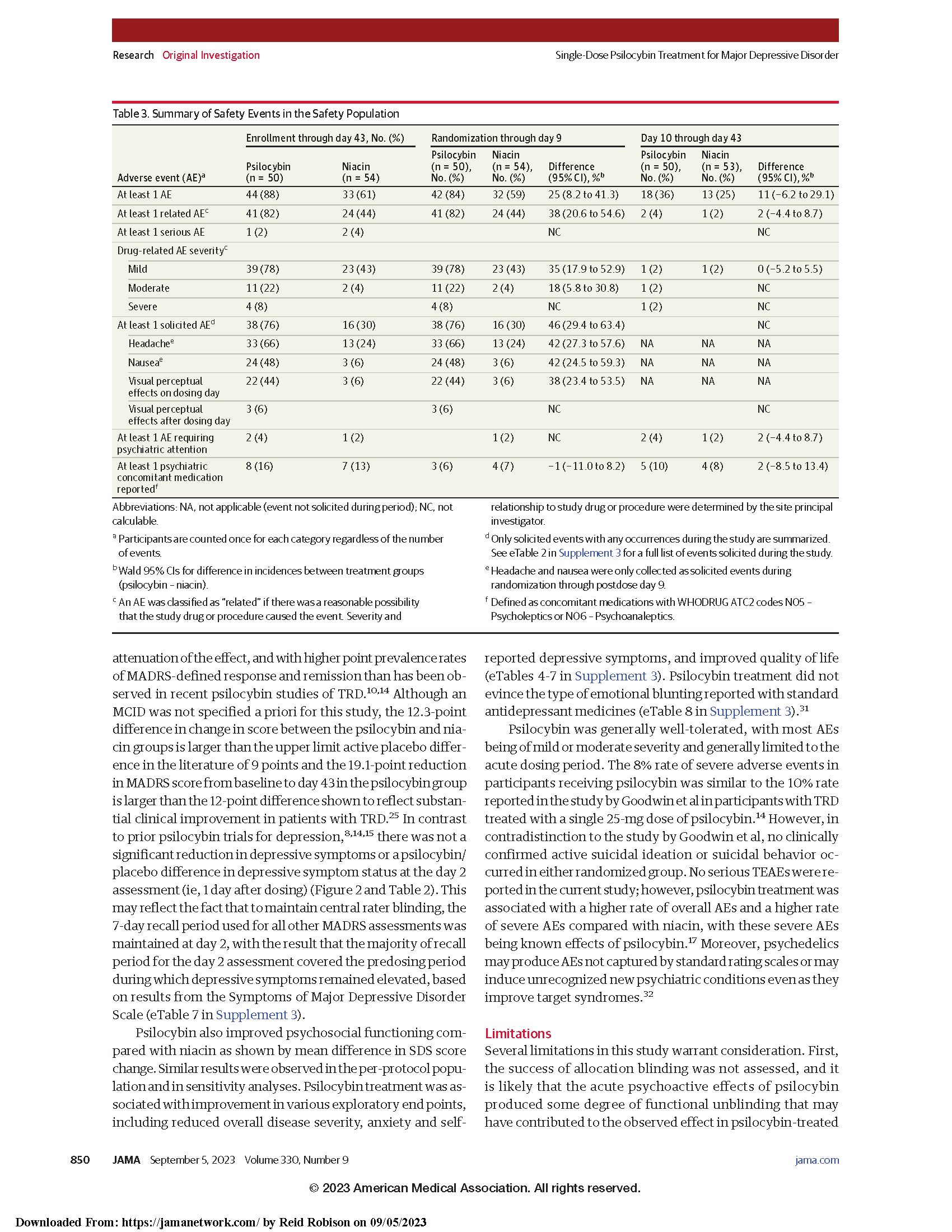
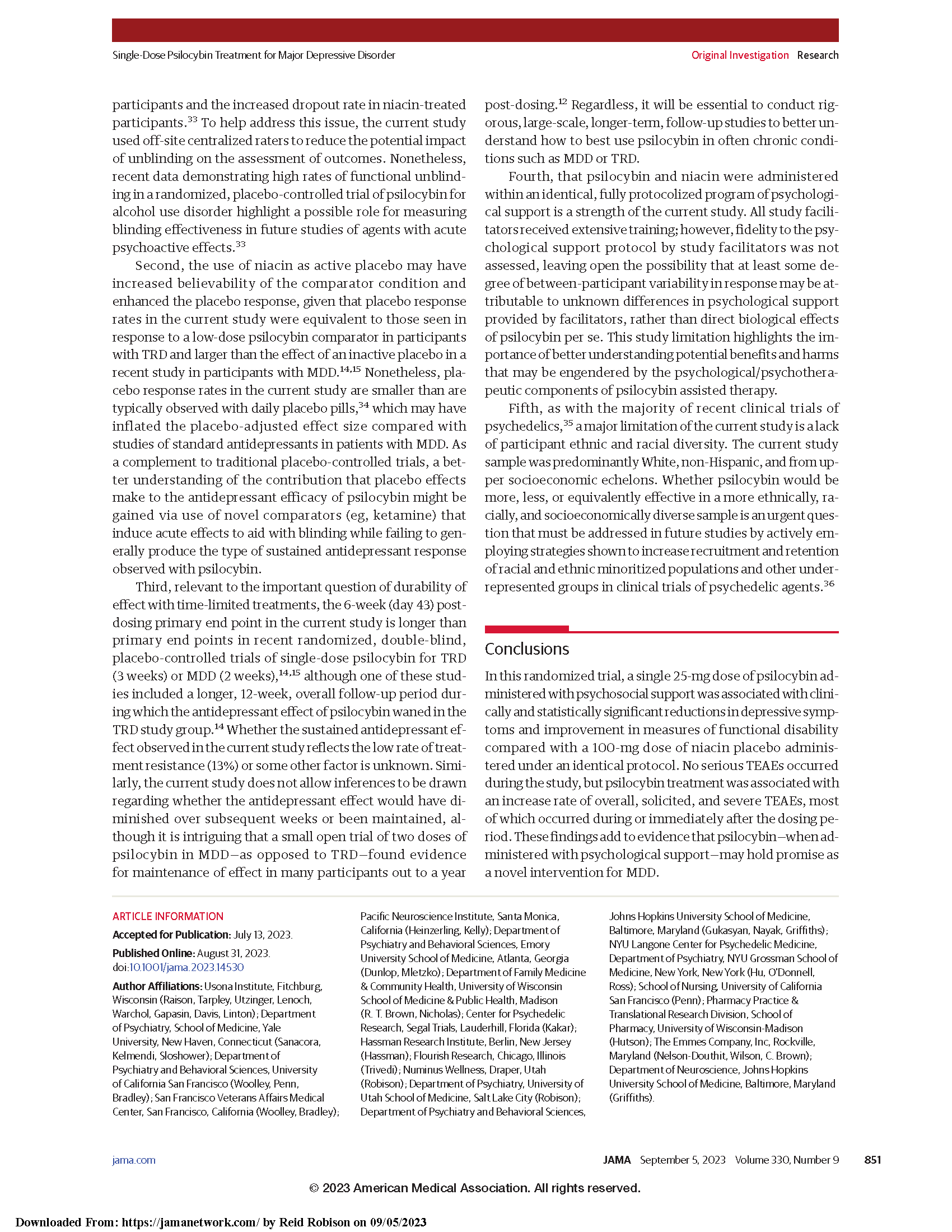
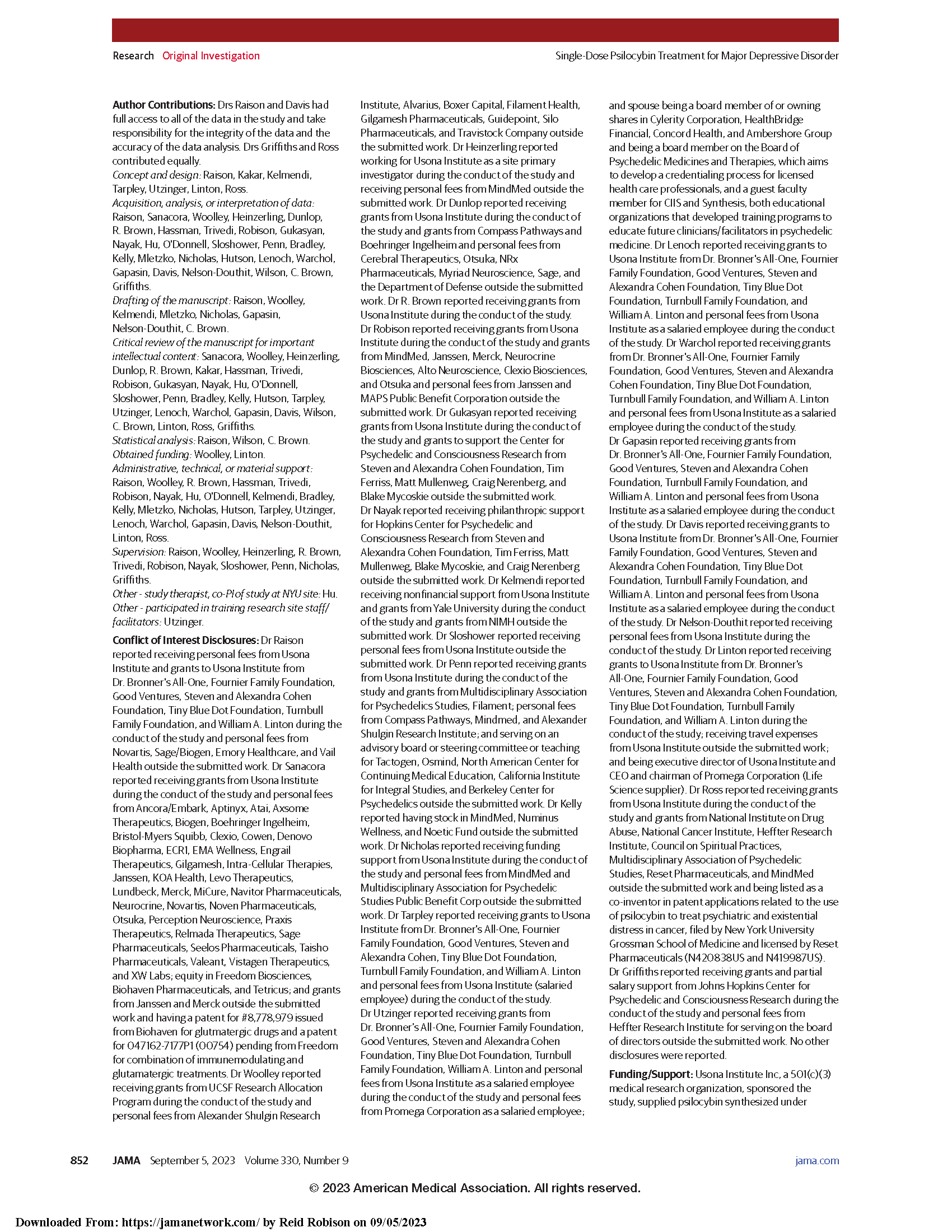
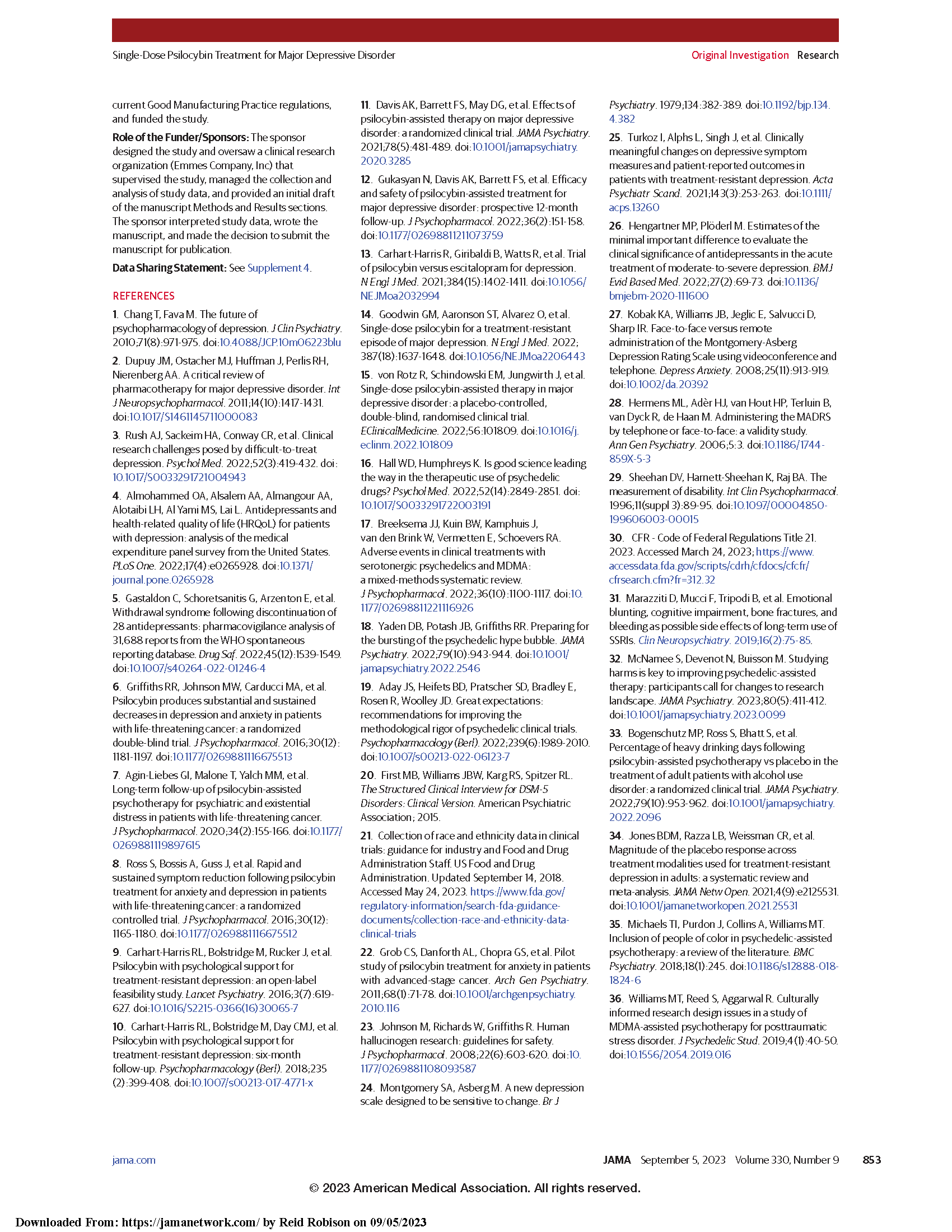
Citation
Raison CL, Sanacora G, Woolley J, et al. Single-Dose Psilocybin Treatment for Major Depressive Disorder: A Randomized Clinical Trial. JAMA. 2023;330(9):843-853. doi:10.1001/jama.2023.14530
